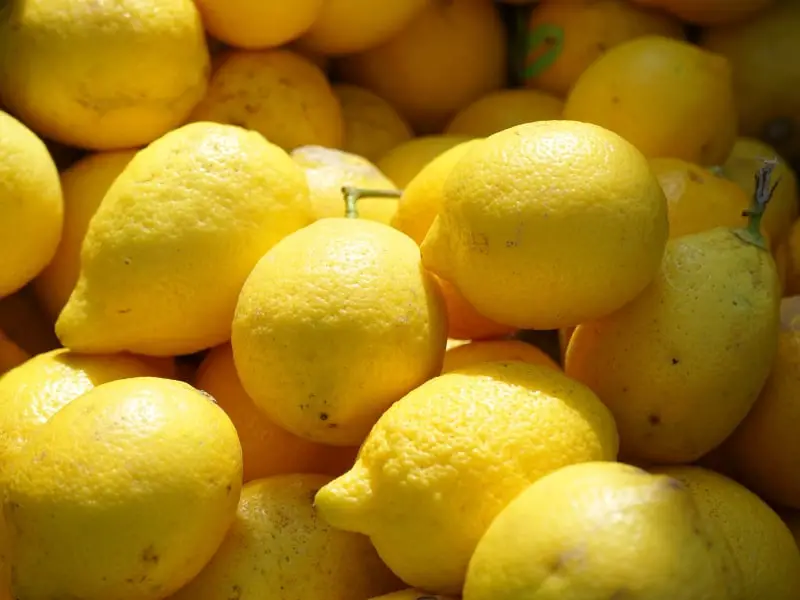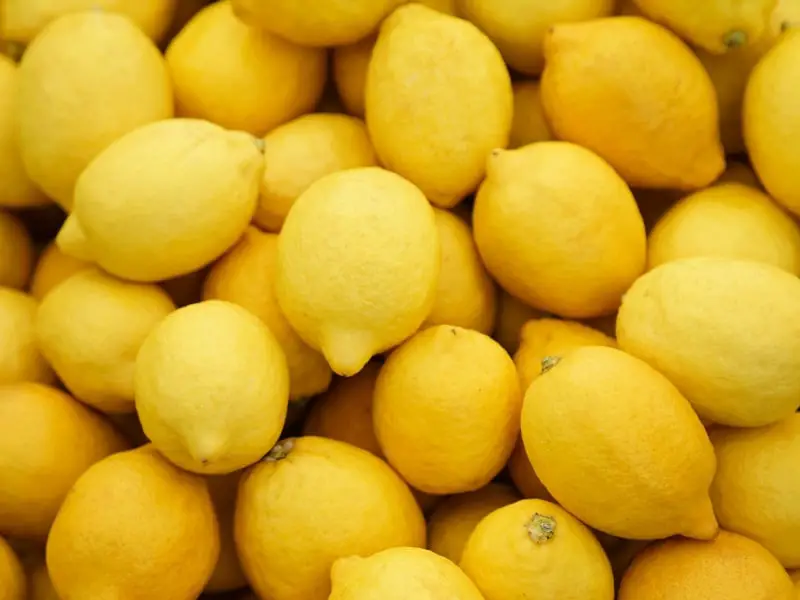Rabbits are herbivores and require a diet rich in fiber, vitamins, and minerals. While hay and fresh vegetables are the primary components of their diet, some owners may wonder if they can offer their furry friends fruits as a treat. One such fruit is lemons.
Lemons are citrus fruits that are high in vitamin C and other nutrients. However, their acidic nature may cause concern for rabbit owners. The question remains: can rabbits eat lemons?
In this article, we will explore whether or not lemons are safe for rabbits to consume. We will examine the nutritional benefits and potential risks associated with feeding lemons to rabbits. By the end of this article, readers will have a better understanding of whether or not lemons should be included in their pet rabbit’s diet.
Can rabbits eat lemons with skin?
Rabbits are herbivorous animals, which means they primarily eat plants. Their diet mainly consists of hay, fresh vegetables, and fruits. However, not all fruits and vegetables are safe for rabbits to consume. One such fruit is lemons.
Lemons are acidic fruits that contain citric acid, which can cause digestive problems in rabbits if consumed in large quantities. Although rabbits can eat lemons, it is not recommended to feed them lemons with skin.
The skin of lemons is tough and difficult to digest for rabbits. It can cause blockages in their digestive system, leading to serious health issues. Moreover, the skin of lemons contains pesticides and chemicals that can be harmful to rabbits.
If you want to feed lemons to your rabbit, it is best to remove the skin and seeds. You can give them a small amount of lemon flesh as a treat once in a while. However, it should not be a regular part of their diet.
In conclusion, rabbits can eat lemons, but it is not advisable to feed them lemons with skin. It is best to give them a small amount of lemon flesh as an occasional treat. Always consult with a veterinarian before introducing new foods to your rabbit’s diet.
Benefits of Feeding Lemons to Rabbits

Lemons are a good source of vitamins and minerals that can benefit the health of rabbits. Here are some of the benefits of feeding lemons to rabbits:
1. Rich in Vitamin C
Lemons are a great source of vitamin C, which is essential for rabbits. This vitamin helps boost the immune system, promotes healthy skin, and aids in the absorption of iron. Rabbits cannot produce their own vitamin C, so it is important to provide them with this nutrient through their diet.
2. Helps with Digestion
Lemons contain citric acid, which can help improve digestion in rabbits. This acid helps break down food and aids in the absorption of nutrients. It can also help prevent the growth of harmful bacteria in the gut.
3. Promotes Hydration
Lemons are a good source of water, which is important for keeping rabbits hydrated. Providing lemons as a treat can help supplement the water intake of rabbits, especially during hot weather.
It is important to note that lemons should be given to rabbits in moderation. Too much citric acid can be harmful to their digestive system and cause diarrhea. Additionally, the high sugar content in lemons can lead to obesity and dental problems if given in excess. Rabbits should always have access to fresh water and hay, which should make up the majority of their diet.
Overall, feeding lemons to rabbits can be a healthy addition to their diet when given in moderation.
Risks of Feeding Too Many Lemons to Rabbits
While lemons are not toxic to rabbits, feeding too many lemons to rabbits can lead to several health risks. Lemons are highly acidic, and feeding too many lemons can cause digestive problems, such as diarrhea and stomach upset.
In addition to digestive problems, feeding too many lemons to rabbits can also lead to dental problems. Lemons are acidic and can erode the enamel on a rabbit’s teeth, leading to dental issues such as tooth decay and tooth loss.
Feeding too many lemons to rabbits can also disrupt their natural diet. Rabbits are herbivores and require a diet that is high in fiber. Lemons do not provide any significant nutritional value to rabbits and can cause imbalances in their diet.
It is important to note that while lemons are not toxic to rabbits, other citrus fruits such as oranges and grapefruits can be harmful to rabbits. These fruits contain high levels of sugar, which can cause digestive problems and obesity in rabbits.
In conclusion, while lemons are not toxic to rabbits, feeding too many lemons to rabbits can lead to several health risks. It is important to provide rabbits with a balanced diet that is high in fiber and avoid feeding them foods that can disrupt their digestive system and cause dental problems.
How Many Lemons Can I Give My Rabbit?
When it comes to feeding rabbits, it’s important to remember that they are herbivores and their digestive systems are designed to process high-fiber foods. Therefore, it’s important to be cautious when introducing new foods to their diets, including lemons.
Lemons are high in citric acid, which can cause digestive upset in rabbits if consumed in large quantities. While small amounts of lemon may not be harmful, it’s best to limit their intake and only offer it as an occasional treat.
A good rule of thumb is to offer no more than a few small slices of lemon per week, and always monitor your rabbit closely for any signs of discomfort or digestive issues. If your rabbit experiences diarrhea or other digestive problems after consuming lemon, it’s best to avoid offering it in the future.
It’s important to note that lemons should never be considered a replacement for a rabbit’s regular diet of hay, fresh vegetables, and water. These foods should make up the majority of their diet, with treats like lemons offered sparingly and in moderation.
Overall, while it’s possible for rabbits to eat lemons in small quantities, it’s important to exercise caution and be mindful of their digestive health.
Can Baby Rabbits Eat Lemons?
It is not recommended to feed baby rabbits lemons. Lemons are acidic and can cause digestive issues, especially in young rabbits with sensitive digestive systems.
Baby rabbits require a diet that is high in fiber and low in sugar. Lemons are high in sugar and should be avoided. Additionally, the acidic nature of lemons can cause mouth sores and discomfort for baby rabbits.
It is important to provide baby rabbits with a balanced diet that includes hay, fresh vegetables, and a small amount of pellets. Fruits should be given as an occasional treat and only in small quantities.
In summary, it is best to avoid feeding lemons to baby rabbits due to their high sugar content and acidity. A balanced diet that includes hay, fresh vegetables, and a small amount of pellets is essential for the health and well-being of baby rabbits.
Related Articles:

